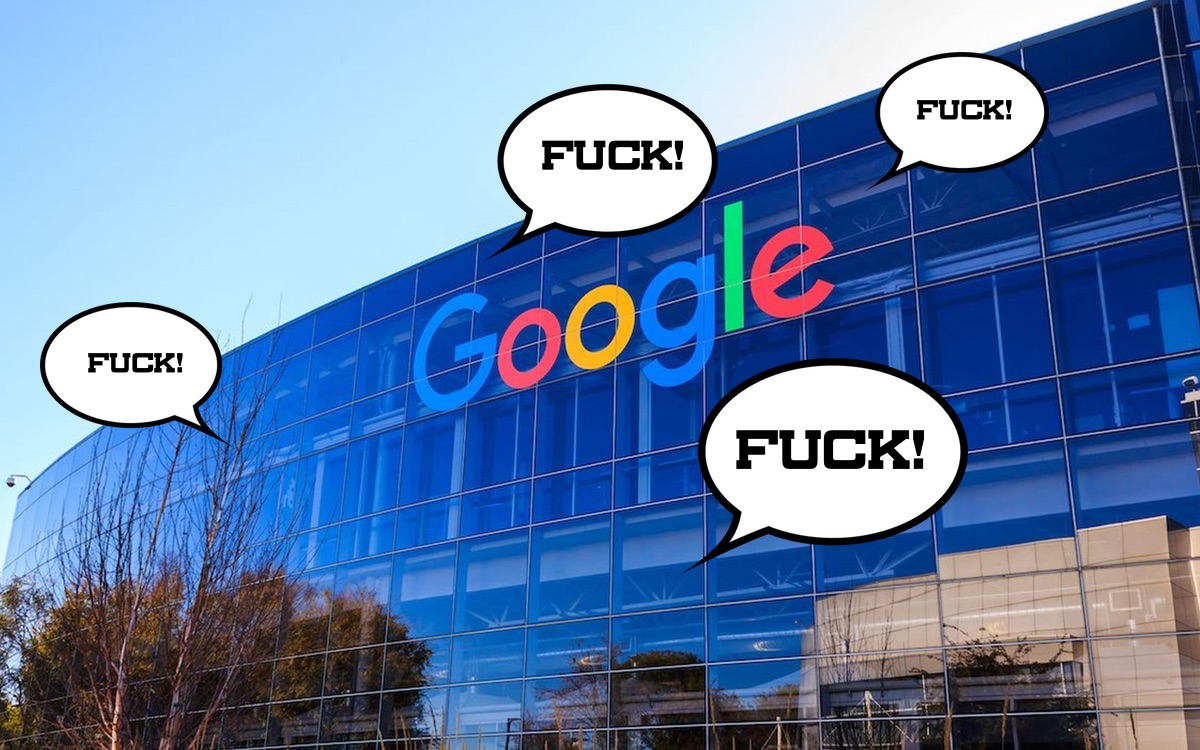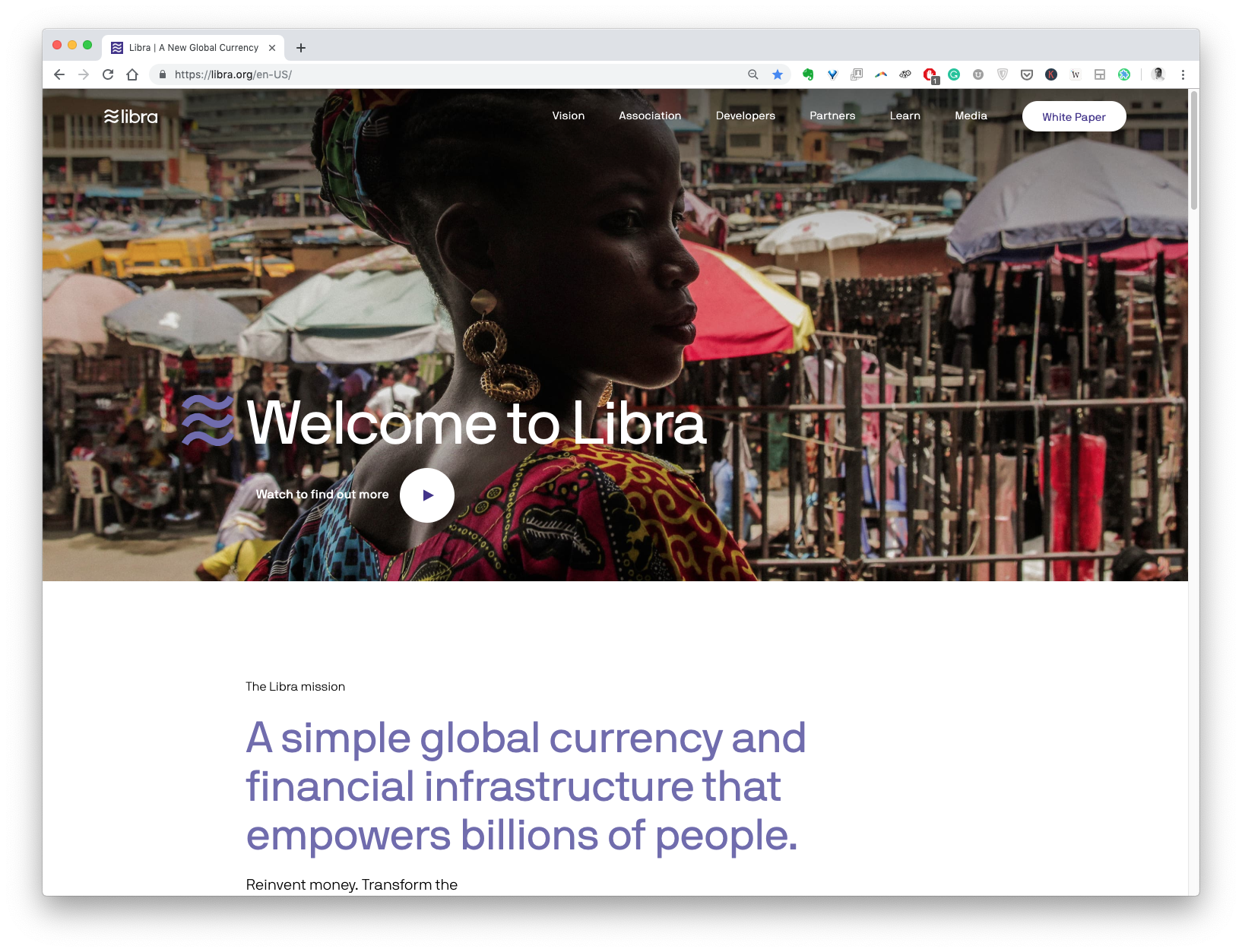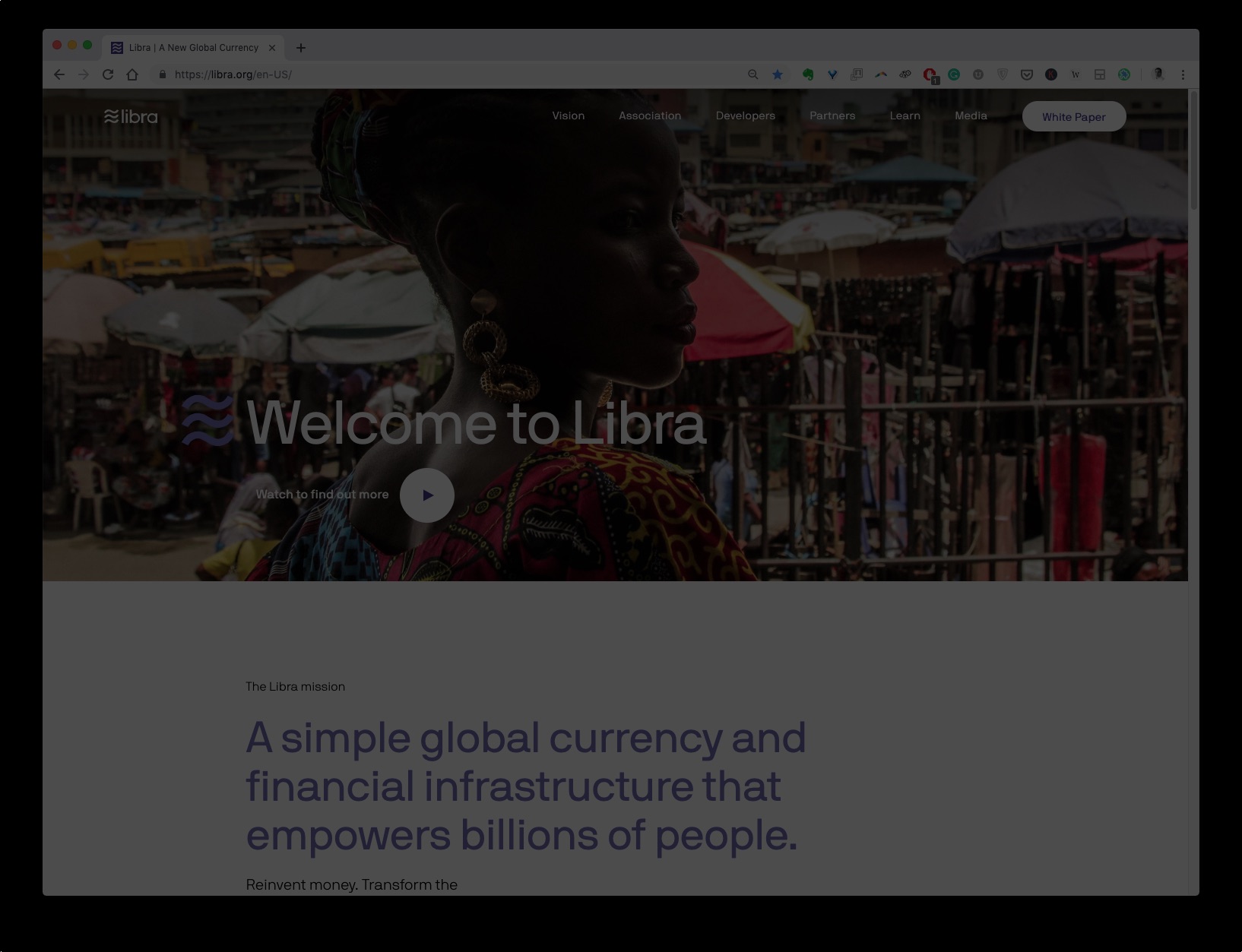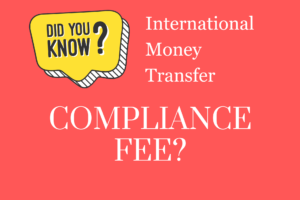Introducing Libra and Calibra
Well. The inevitable moment arrived. Facebook has formally announced their plans to build a cross-border payment system that utilizes a form of stable coin, cryptocurrency and blockchain. A global currency called Libra, and the wallet that will empower it: Calibra.
I can say with confidence, that if you are in the vicinity of Google Headquarters, you can hear a lot of… well, I’ll just let the image below speak for itself.

Let it be no doubt, you’re witnessing a day no less historical than 29th of June 2007 when the iPhone was launched by the legendary Steven Jobs. This is such a moment, and I’ve never been excited and worried at the same.
In one announcement, a lot of people are now facing the inevitable demise of their business. It’s just natural. When the car same, the horse & carriage industry suffered the hemorrhage. When the CD came out, the cassette and vinyl industry went under. MP3 and Digital Streaming killed the DVD industry and portal cartridges storage industry.

This is indeed a very powerful announcement with a tsunami effect that won’t be seen until it is too late.
Over the years I have participated in many talks which are aptly titled, The Fragmentation of Payments – The Trillion Dollars Opportunity.
By launching Libra, Facebook has essentially started on a journey, which would be very difficult to counter. I’m not under the influence of any egotistical kool-aid, Facebook/Libra will have competition, regulatory challenges, and incumbents who don’t want to die so easy, but it will be very interesting not only to witness it, but I can bet you, we would also be a part of it.
I’ve written extensively in the past about what Facebook might do when it comes to cross-border payments. You can read those Quora answers and posts at the bottom of this article.
As Facebook is such a large platform, it provides an opportunity to easily find a partner in each territory who would happily be a payout partner for last mile distribution and account credit.
I personally believe, Facebook has learned a lot of lessons from FB Credits, Messenger Payments and by studying a host of other global payment providers and networks, to build what they are envisioning, which is a worldwide interoperable payment coin. The interoperability comes from the fact that the coin can be converted to fiat in almost any of the countries that Facebook would work with this project Libra.
I normally am very skeptical when it comes to tech giants entering the payments space. Look at Google Pay, how many people actually use it? PayPal is the only one-hit wonder that is truly available on a global scale, because they lucked out and grew with the internet as the internet and e-commerce itself was growing.
Over the next couple of day, you can expect to see a lot of pundits, influencers and “I told you so” folks coming out with their opinions, theories and forecasts. That noise will eventually die down.
What really matters is from the reading I have done on Libra’s website is that they are going after each market. Placing an anchor there.Many Money Transfer Operators (MTOs) will be happy to say that they welcome Facebook and they are not really affected by this announcement, blah. blah. blah.
Two great summaries of this whole launch that I would recommend you read up on:
- Slightly technical: Binance Research: First Look: Libra
- TechCrunch: Facebook announces Libra Cryptocurrency
This is pure BS. Of course they are affected and everyone is going to try to keep a straight face about this. Many will say, they are already ready to partner up with Facebook to settle payments on their behalf in various countries that they have licenses and access to. While in the short run this may be true, Facebook, in my opinion will eventually seek settlement partners directly in each country. Notice the plural: partners. A money transfer operator is an intermediary and offers no long term benefit to association. Banks do, because that is where the money is parked. And the less people touching the money in-between when it is being transported, the better it is.
There are also two other points I would like to make. When Facebook was being launched, there really wasn’t anything as such of a ‘social’ network. Facebook, was the social network.
In today’s landscape, there is already a very well established network for banking & payments. There are many disparate players who are involved in this. On a P2P (Person to Person) cross-border payments landscape, about 15,000 or so companies worldwide, playing in the $600+ Billion per year market. On the flip side, we have the the $100+ Trillion B2B/B2C cross-border payments industry with less than a 1,000 players.
I believe Facebook will enter both markets. Start with the low and tough hanging fruit of P2P payments and then ease its way into the B2C Payments and then full blown stack of B2B payments.
No one in their right mind would like to say No to Facebook when offered partnerships. FB’s go-forward strategy would be, we might not have much or any transactions right now, but going forward we will. Not only would we have the transactions, we might dominate the online white-collar cross-border payments world for your country. So, work with us, and let us help you increase your inflow remittances.
We haven’t even touched upon the unbanked which I will save for a later time. But suffice to say, if the FB coin, becomes the de facto trade-able IOU, then there is a lot of money to be made online.
I can’t help but think of a post done by Ben Milne, CEO of Dwolla. When you digitize money, its life is already has been defined in a finite sense. A $100 transaction in the online card world, going back and forth literally goes to $0 after 79 attempts. That means, the system has a built-in mechanism for fees deduction the more you trade with it. These micro trades is what the FB system is going to be all about. Just like FB, a comment here and a comment there, where small amounts of data invariable created the world’s largest publishing network, the same would apply to money. Micro-transactions would be HUGE on FB’s system.
Going forward it will be very interesting to see how this all plays out.
Some Previous Articles:
- Why are start-ups or Facebook itself not using Facebook’s large user base for money-transfer services?
- Facebook forays into the world of online payments?
- Facebook: Will Facebook ever launch a service that is similar to PayPal?
- What will be Facebook’s payment strategy?
- Facebook: How disruptive can Facebook be with payments?
- Facebook: What should Facebook do next to drive a step-function growth?
- Ripple: How can organizations such as Facebook benefit from partnering with Ripple?
—
This page was last updated on September 1, 2022.
–




